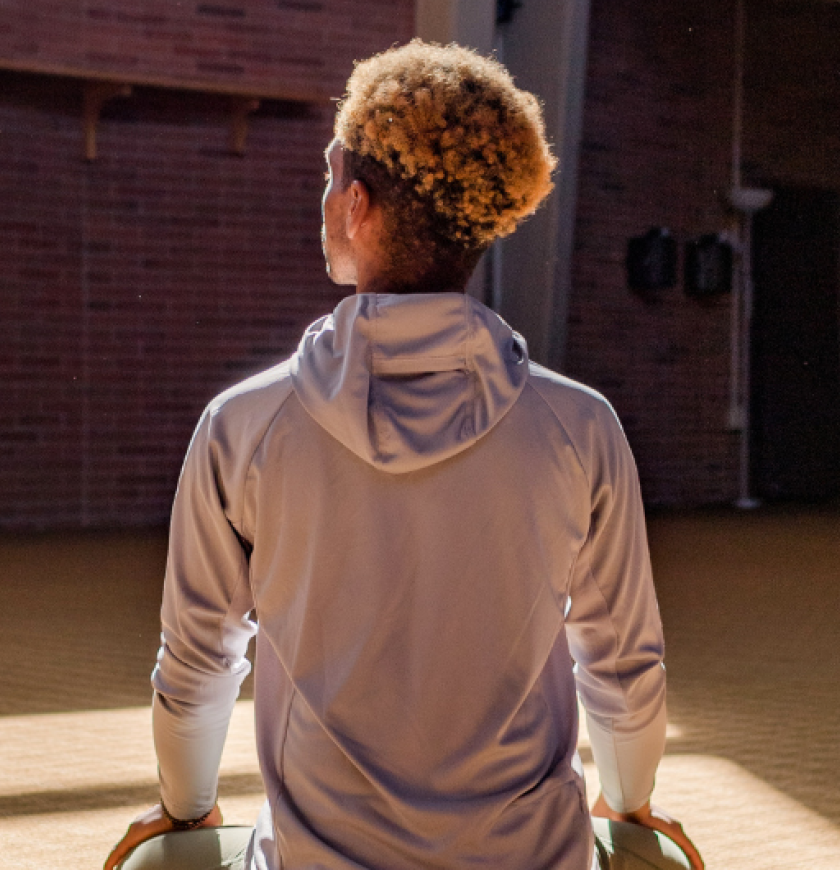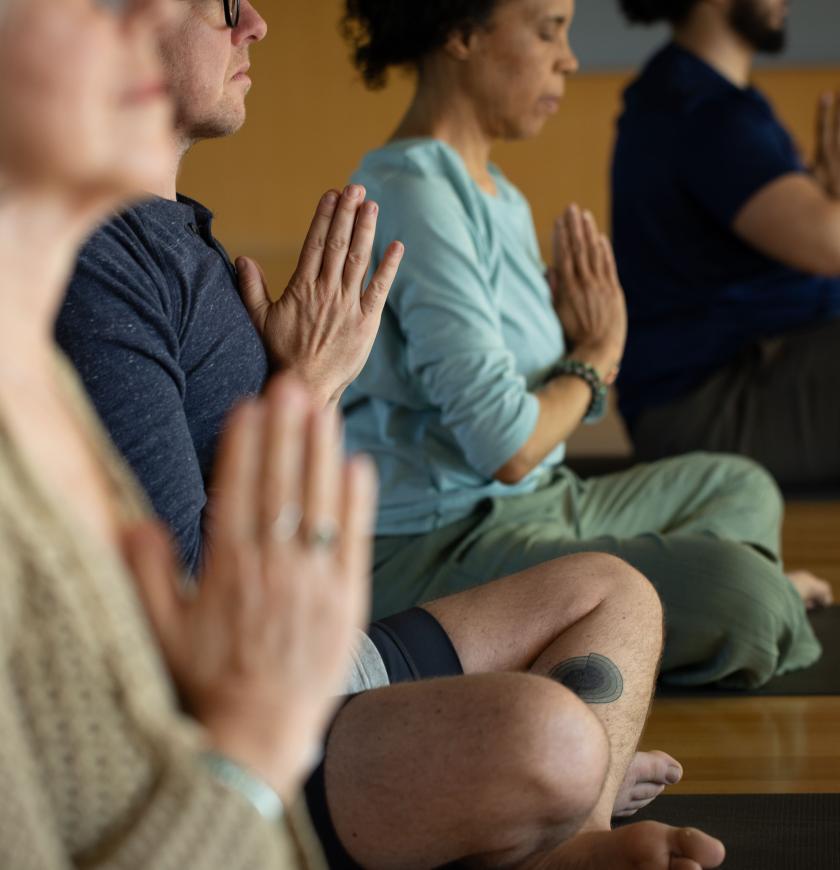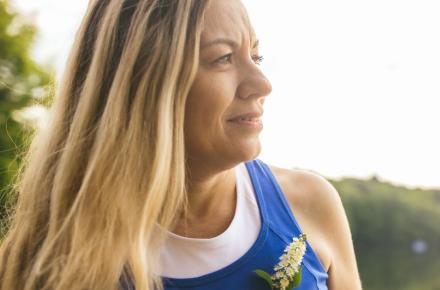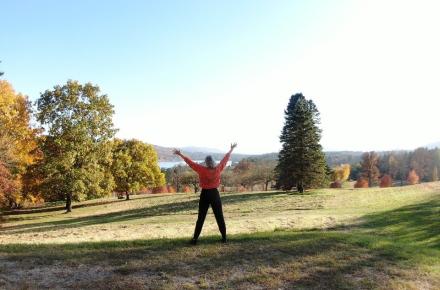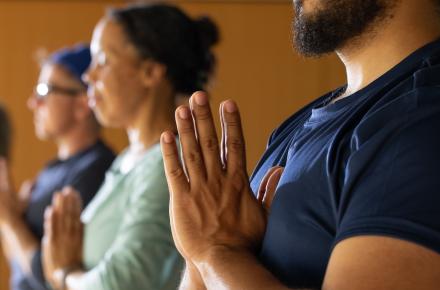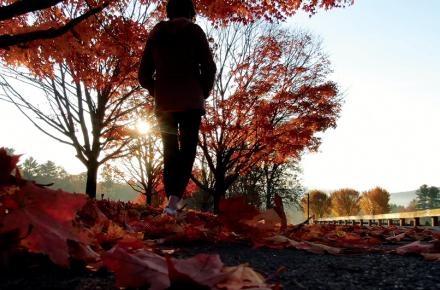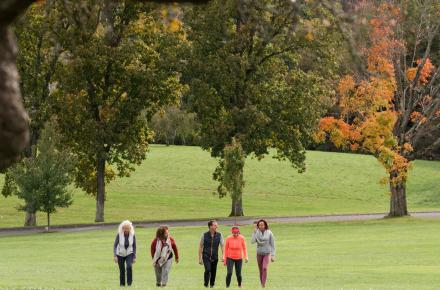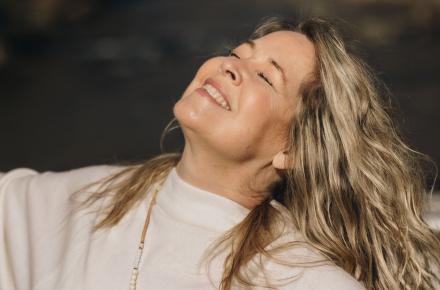To Ice or Not to Ice? The Ayurvedic Question

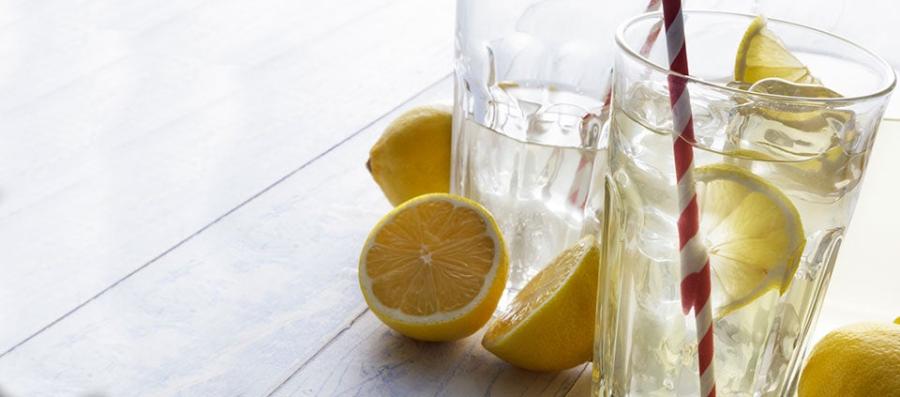
Here in the northern states, summer is finally upon us. Some may rejoice, while others may cringe and seek relief in a freezing-cold drink. But, before you reach for that glass of ice water, let’s investigate the merits of ice water versus tepid water through the lens of Ayurveda.
Ayurveda’s foundational prescription in addressing any imbalance is, “Like increases like and opposites balance.” This is fairly intuitive: For example, if you’re cold, put on a sweater and drink a mug of warm ginger tea. One exception to the rule, however, is treating excess heat with icy drinks.
Why shun ice water?
Consuming ice water dampens the digestive fire, or agni. Agni’s job is to process everything you take in through the senses—and that includes food and beverages.
Typically, the body has a base temperature of 98.6 degrees. When you toss back a glass of ice water with a temperature of 33 degrees, the energy expenditure required to kick the heat back up to 98.6 is substantial.
Consuming ice water is similar to tossing water on a camp fire: Damp smoke is released and the fire dies down. The smoke can be an analogy for poorly digested and assimilated food. With the fire damped down, what we consume can become toxins that clog up our channels and make us feel subpar.
Doesn’t ice water actually burn more calories?
You might have heard this “dieting tip” from fitness buffs. Yes, drinking ice water does burn calories in the short term, as the body struggles to return to homeostasis. However, over the long term, drinking very cold water creates imbalances that can ultimately result in weight gain. According to Dr. Vasant Lad, “Ice-cold water is poison to the system and hot water is nectar.”
Hot or warm water, according to Vagbhata’s classical text, Astanga Hrdayam, “stimulates hunger, helps digestion, is easily digested, [and] relieves hiccups, flatulence, aggravated vata, and aggravated kapha.” Hot water increases the digestive fire (like increases like), resulting in a better breakdown and assimilation of everything we consume. Strong, supported agni will prevent food from being stored as fat, toxins, or fermented gaseousness in the gut.
Post-workout, opt to rehydrate with a bottle of room-temperature water. Vagbhata observed that warm water actually quenches thirst swiftly. Dr. Lad explains that, immediately after exercise, it is natural to want to reach for ice water; however, “the cold drink will slow the metabolism, defeating the gain from the exercise.”
Sure, when it’s sizzling hot out, the last thing you want to do is sip warm water. If a pitta imbalance is evident, or if it’s particularly hot outside, it’s better to drink cool water rather than hot, as the hot water may exacerbate pitta. Compromise: Opt for a glass of ice-free water with a squeeze of fresh lime and a few slices of cooling cucumber.
If you are a die-hard fan of ice-cold beverages, start slowly. Wean yourself off the ice and gradually become accustomed to drinking tepid water. Your thirst will be alleviated and your digestive fire will stay strong.
Lauren Gernady is the Academic Coordinator for the Kripalu School of Ayurveda, and a lifelong student of holistic living. An Ayurvedic Health Counselor and 500-Hour Kripalu Yoga teacher, Lauren explores Ayurveda daily through cooking, writing, and spending time in nature.
© Kripalu Center for Yoga & Health. All rights reserved. To request permission to reprint, please e-mail editor@kripalu.org.

